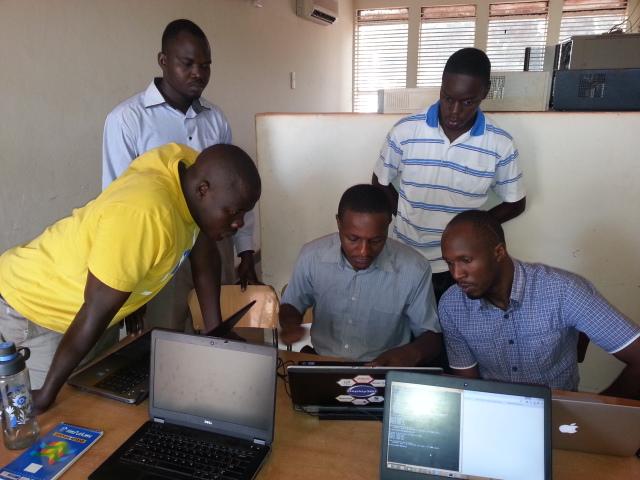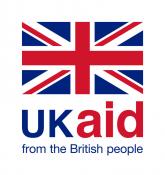
Strengthening NREN capacity to improve university networks
Although considerable improvements have been made to broadband infrastructure across Africa, academics and students using computers on university campuses don’t always see the benefit – information and data is still slow to download and more advanced services such as video-conferencing or data sharing are difficult to access. Often this is because local networks are not well designed or configured. Where the hardware is in place, the skilled staff may be missing to manage it day to day.
In 2013, INASP and the UbuntuNet Alliance launched a pilot project, working with National Research and Education Networks– national providers of academic and research IT services, known as NRENs -- to improve campus networks and to strengthen the ability of NRENs to provide on-going support and training.
The pilot was run under the Strengthening Research and Knowledge Systems (SRKS) programme and provided advanced training and support to national research and education networks – national providers of academic and research IT services, known as NRENs, -- Tanzania, Uganda and Zambia.
Recognizing that much of the hardware, software and content was already in place, the pilot focused on the human capacity needed to make best use of this – the skilled engineers on university campuses needed to tackle this ‘last-kilometre’ problem
Without the skills to deploy technology, maintain and improve it – and to think critically and creatively about its use – it won’t suddenly transform the way teaching or research is done. Developing technology is about developing individuals to manage and mobilize it. - Jon Harle, INASP
Between 2013 and 2015, INASP supported NREN staff (TERNET (Tanzania), RENU (Uganda) and ZAMREN (Zambia)) to attend advanced training courses, and to run training sessions for groups of university engineers. The project then enabled partner NRENs to run hands-on sessions at universities to re-configure networks and match graduate interns with universities in need of IT support.
During the final year of the pilot, the project offered flexible grants to each NREN, to provide further support to universities, according on their own strategic aims.
Achievements
The pilot project produced useful, practical outcomes for NRENs and research and higher education institutions, with positive changes in the capacities of network engineers and the NRENs that train and support them, and in the campus networks.
- Direct Engineering Assistance (DEA) knowledge and skills of IT engineers were built through training and hands-on troubleshooting sessions on a university campus, and then put into practice.
- NREN engineers used their improved training skills to run workshops for campus engineers. The pool of trained trainers then enabled the NRENs to run over 40 training events on their own initiative.
- This led directly to improvements in the performance of campus IT networks, including significant network speed improvements and the capacity to handle more network traffic. In other cases the work identified gaps in the existing hardware/software and so supported a strategic approach to investments to improve campus networks.
- The pilot resulted in changes in approach, with increased confidence, collaboration and peer support between NRENs in different countries, between the NRENs and the campuses, and between the campus engineers themselves, leading to increased skill sharing and problem solving.
- Initial evidence illustrates how these network improvements have enabled researchers to share data and collaborate more effectively.
- During the pilot each NREN developed a strategic plan, identifying how they would sustain their services support in the future.
In a short spell of time we have a huge pool of network engineers [who…] can manage their own campus networks
The NSRC has worked in 120 countries since its founding in the early 1990s. I’ve worked with the NSRC in some way, or another, since 1997. During this time I’d say that this coordinated pilot programme was one of the most successful I’ve seen. Working closely with engineers and staff at TERNET (Tanzania), ZAMREN (Zambia) and RENU (Uganda), we have seen significant growth, outreach and improvements in human capacity over the three-year period of the programme.



